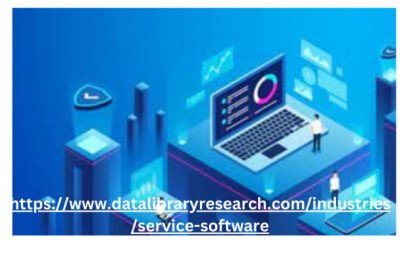views
Non-woven fabrics have been gaining in popularity in recent years for a variety of reasons. They are often seen as eco-friendly, since they use less energy in production than traditional fabrics, and they can be printed with a wider range of colors and designs than traditional fabrics.
What is a piece of non-woven fabric?
Non-woven fabrics are materials that are not woven together in a continuous sheet. They are typically made from a variety of synthetic and natural fibers and can be used for a variety of applications including insulation, flooring, and clothing. What are the benefits of using non-woven fabrics?
Numerous benefits exist when it comes to using non-woven fabrics. First and foremost, they are very versatile - they can be used for a variety of applications, depending on the type and quality of the fabric. Additionally, non-woven fabrics are often more affordable than traditional woven fabrics. Finally, non-woven fabrics are often environmentally friendly - they tend to have a lower environmental impact than traditional woven fabrics. What are some common types of eco-friendly non-woven bags or fabric?
There are several types of non-woven fabric, including thermal insulation, flooring material, apparel fabric, and packaging material. How do I choose the right type of non-woven fabric for my application?
The best way to choose the right type of non-woven fabric for your application is to consult with an expert. A textile specialist will be able to recommend the best type of non-woven fabric for where you will use it. Non-woven fabric is utilized extensively across numerous sectors and has a wide range of uses. Non-woven fabrics are used in the carpeting industry for carpet backing, pillows, cushions, mattresses, and weather-resistant house wraps. In the medical field, they are used to make surgical scrubs, gloves, caps, shoe covers, wipes, plasters, wound dressings, isolation gowns, masks, and medical packaging. In the geotextiles sector, products include landfill liners, drainage systems, frost protection, foundation stabilizers, landfill liners, landfill liners, and soil stabilizers. for filters used in the filtration of substances such as water, fuel, coffee, tea, mineral processing, vacuum bags, allergy membranes, and laminates made of non-woven layers.
Types of non-woven fabrics
Non-woven fabrics are a growing trend in the fashion industry. There are many different types of non-woven fabrics, and each has its unique properties. In this blog post, we will discuss three types of non-woven fabrics: textile fiberglass, spun bonded carbon fiber, and chopped strand is woven.
Textile Fiberglass Fabric
Textile fiberglass fabrics are made from woven strands of synthetic fibers. They have a very strong texture and are often used for athletic apparel and other clothing items that need to be durable. Textile fiberglass fabrics are also popular for use in automotive parts and other industrial applications.
Spunbonded Carbon Fiber Fabric
Spunbonded carbon fiber fabrics are made from continuous rolls of carbon fibers that have been bonded together using resin. This makes the fabric extremely strong and flexible. Spunbonded carbon fiber is commonly used in high-performance sports gear, aircraft parts, and medical devices. Check out our products made of non-woven fabrics such as PLA non woven bag, eco-friendly non-woven bags, Non Woven shopping tote Bag, Sewing Non-Woven Bag, lunch box non-woven tote bag, Non woven vest bag and more. Visit our website for more information.

image source: https://www.pinterest.ph
Benefits of using non-woven fabrics
Factory direct non-woven fabrics offer some benefits that can make them desirable for use in a variety of applications. Some of the key advantages include ease of installation and removal, low cost, fast processing times, and easy storage. They are also resistant to wear and tear, providing long-term durability for applications such as automotive seating and luggage.
How to choose the right type of non-woven fabric for your application
Choosing the right type of non-woven fabric for your application can be a bit daunting, but it's important to remember that there are a variety of options available to suit just about any need. Here are some tips to help you choose the right type of non-woven fabric for your project:
First, think about what kind of performance you're looking for. Some types of non-woven fabrics are best suited for applications that require high levels of durability, like automotive or sporting goods fabrics. Others are better suited for applications that need lighter weight and breathability, like outdoor fabrics.
Next, consider your budget. Non-woven fabrics come in a variety of prices and styles, so it's important to find one that fits your needs while still staying within your budget. Some popular types of non-woven include polypropylene, rayon, and cotton.
Finally, think about the application. Non-woven fabrics can be used in a variety of applications, so it's important to know what you're looking for before making a purchase. Some common applications include clothing and home textiles.
Advantages of factory direct non-woven fabrics
Factory direct non-woven fabrics are becoming increasingly popular due to their many advantages. Here are some of the benefits of factory-direct non-woven fabrics:
1. Low cost: Factory direct non-woven fabrics are often cheaper than fabric made in a traditional production process.
2. Durability and strength: Non-woven fabrics are often more durable and stronger than traditional woven fabrics, making them ideal for applications that require these qualities, such as industrial clothing and packaging or lunch box non-woven tote bag.
3. Environmental friendliness: Non-woven fabrics require less energy to produce than traditional woven fabrics, meaning they can be more environmentally friendly.
4. Customizability: Non-woven fabrics can be customized to meet specific requirements, making them a perfect choice for specialty applications.

image source: https://www.pinterest.ph
Conclusion
Factory direct non-woven fabrics offer a wide range of benefits that make them an excellent choice for several applications. From outdoor apparel to medical supplies, these fabrics can do it all. Not only are they durable and stylish, but they are also easy to clean and maintain. Whether you are looking for a new fabric option or need help finding the right one for your project, factory-direct non-wovens are a great option to consider.











